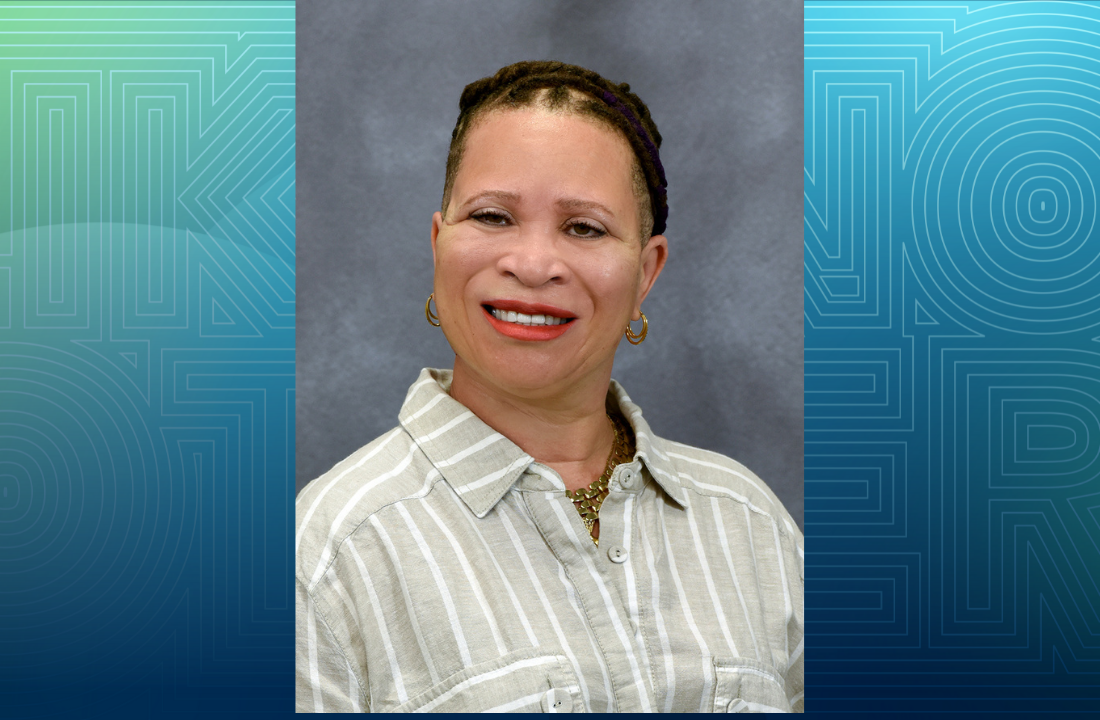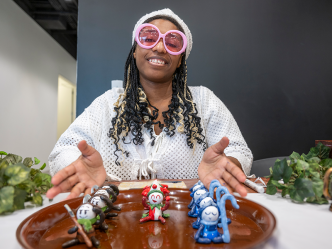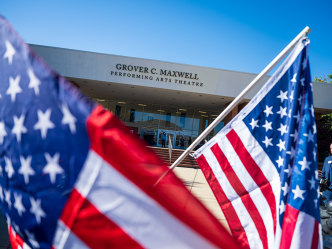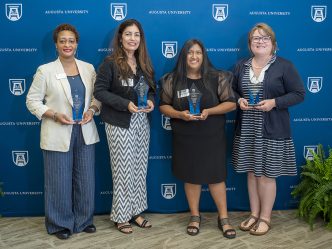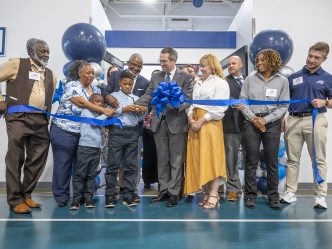As Augusta University’s annual Alumni Weekend approaches, the university is celebrating alumni entrepreneurs. Anna Griffin, a 2019 graduate from the Pamplin College of Arts, Humanities, and Social Sciences, is the founder and CEO of Ebony Tree Council.
Tell us about your business.
Ebony Tree Council was established in January 2017. The idea of creating a nonprofit came from a class assignment with Dr. Allison Foley, and numerous class discussions with Dr. Candace Griffith, both of the Department of Social Sciences.
We show young Black minds how to dream by exposing them to experiences outside of their everyday life. We incorporate healthy eating, positive image reinforcement, project management, the arts, S.T.E.A.M., financial literacy, civic responsibility, life skills development, and career planning and development. We focus on students between the ages of 15-22, as our mission is to shrink the generational wealth gap that exists within Black families.
How did you get started?
As a nontraditional student, I started to notice my young, fellow Black students were not speaking up as much in class, unwilling to challenge what was being discussed during lectures, and would sit in silence when racially disparaging comments were made. They were suffering in silence. So, after some “tree” conversations outside of University Hall, other nontraditional students and I began talking to the younger students, and asking them questions about what college success meant to them to try to understand their purpose for being here.
I started holding impromptu discussions and study sessions with my younger Black peers; being the example of an ebony tree. After witnessing the positive changes, I officially formed Ebony Tree Council.
What struggles have you overcome while being an entrepreneur?
The ETC has had its fair share of struggles, and equally, it has had its fair of success. From funding to board members dropping out at the 12th hour, we have persevered through sheer determination because of our mission.
One of the most challenging moments we faced was shifting from an in-person programing to a hybrid program. We had to literally rewrite our entire process and programs, which as a new nonprofit, can devastate your organization. The financial impact of that shift is still being felt. Due to our zip code, we do not qualify for EIDL relief, although our targeted audience doesn’t reside within our zip code. Because it is that important to our children, we are still moving forward and making personal financial sacrifices to keep ETC as intended.
What skills did you acquire while you were a student that prepared you to lead a business?
As a future business owner during a time of heightened racial tension on and off the campus, AU provided me understanding, situational discernment and fundamental compassion for others. These are extremely important characteristics to have because regardless of your book knowledge, being able to apply what you have learned through human decency is the basis of a great CEO.
The lessons I learned along the way: a confident smile and eye contact are two of the most impactfully important things you have to offer, which will be felt long after you have parted company with anyone, business or not.
What sets your business apart from others?
The thing that sets ETC apart from other nonprofits is we address the totality of the child. We assess, address, discover and expose them to their dreams using innovative practices to import self-esteem and confidence so they can smoothly navigate society while positively impacting their entire families’ future outcomes.
What is something surprising that people wouldn’t guess about you?
Surprisingly, most people have no idea I love skydiving! I grew up in Washington, D.C., and jumping out of planes wasn’t a part of our everyday dinner conversation. So, the first time I took that leap of faith, my life shifted! It validated I could do anything, and now that’s the feeling I want to provide to Black children — short of jumping out of a plane.
What advice do you have for current students?
Find a nontraditional student and befriend them. Have real conversations and absorb their wisdom as you provide them with today’s relevant knowledge. Most nontraditional students have real-life, real-time wisdom to share and you can learn from it.
Where can we go to learn more about your business?
Check out the Ebony Tree Council website, and follow us on Instagram and Facebook.
 Augusta University
Augusta University
